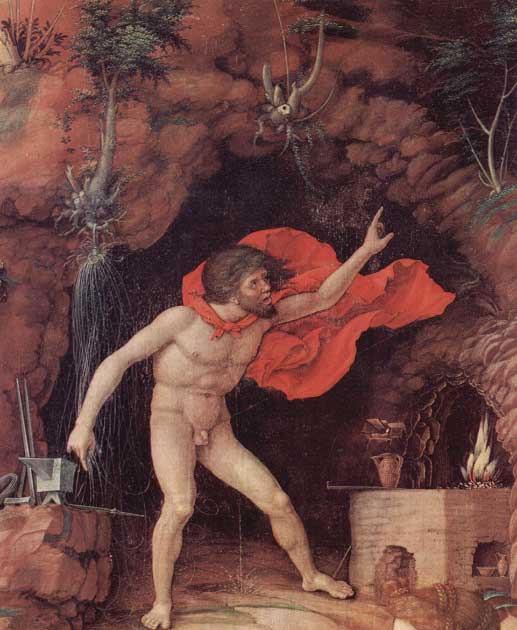Hephaestus was a major deity for the ancient Greeks as he was primarily the god of fire and smiths, but also other crafts, including sculpting and carpentry. He was one of the twelve Olympian gods, the son of Zeus and Hera – the king and queen of Mount Olympus – and married the goddess Aphrodite.
Who was Hephaestus? The Anomaly of the Lame Olympian God
Some ancient writers, wrote Ancient Origins, such as the poet Homer, claimed that the god Hephaestus was the son of Zeus and Hera. Others however, such as Hesiod, stated that Hera conceived the god on her own.
In any case, Hephaestus is said to have been born very ugly, which is an anomaly as the other Greek deities were believed to be physically flawless.
Hephaestus was commonly depicted as a bearded middle-aged man with a large physique, usually described as wearing a short, sleeveless tunic, as this was the clothing of choice of craftsmen.
As a craftsman himself, Hephaestus was associated with such tools of the trade as hammers, anvils, and tongs.

Hephaestus might have been born lame, as one of his many epithets was “the lame one.” In some myths, Hephaestus was said to have been made lame either by Zeus or Hera.
In one such story, Hephaestus is said to have intervened on behalf of his mother during a quarrel between Zeus and Hera. Enraged by his interference, Zeus cast Hephaestus out of Mount Olympus and he became lame after the fall.
In other accounts, it was Hera, disgusted by her son’s deformity and ugliness, who threw Hephaestus down from the mountain.
Hephaestus, God of Fire and Smiths, and his Return to Olympus
It was during his exile that Hephaestus learned his trade. In one version of the myth, Hephaestus fell in the ocean, where he was found by Thetis and Eurynome. The pair sheltered the Olympian in a cave under the ocean for nine years, where he learned to make jewelry using pearls and corals.
In another version of the tale, Hephaestus landed on the island of Lemnos, where he was tutored by Kidalionas, a blacksmith. These tales explain why Hephaestus was the god of fire and smiths.
Eventually, Hephaestus returned to Mount Olympus, thanks to Dionysus. According to one myth, Hephaestus intended to exact revenge on Zeus and Hera for what they had done to him. The god crafted a golden throne, which he gave to his mother. Hera accepted the gift, and sat on it.
When the goddess tried to get up, however, she was unable to do so, as she was tied down by invisible cords. Hera begged her son to set her free, as did many of the other gods, but to no avail.
Eventually, it was Dionysus who prevailed on Hephaestus by getting him drunk, and therefore succeeding in convincing him to set Hera free.
As Hephaestus was about to set his mother free, Zeus appeared and tried to convince his son to release Hera. Realising that his father was unaware that he was going to set Hera free, Hephaestus took advantage of the situation by making a bargain with Zeus.
In exchange for Hera’s freedom, Hephaestus was to have the hand of Aphrodite in marriage. Thus, the lame and ugly Hephaestus became the husband of the goddess of love.

In one story, Aphrodite committed adultery with Ares, the god of war, and the pair were caught red-handed by Hephaestus and ensnared with a chain-net that he made himself. Hephaestus invited the other gods to laugh at the adulterous pair, and it was Poseidon who eventually persuaded him to release them.
Hephaestus created many other magnificent objects, for himself and the gods, as well as for certain mortals. For example, his palace was made of gold, and he fashioned himself gold automata that behaved almost like humans.
Moreover, several pieces of military equipment are said to have been made by Hephaestus for the heroes of Greek mythology. These include the armor of Achilles, the sword of Peleus, and the breast-plate of Diomedes.
READ MORE: ‘Rarest ever’ mosaic depicting the Trojan War is found in Syria.


